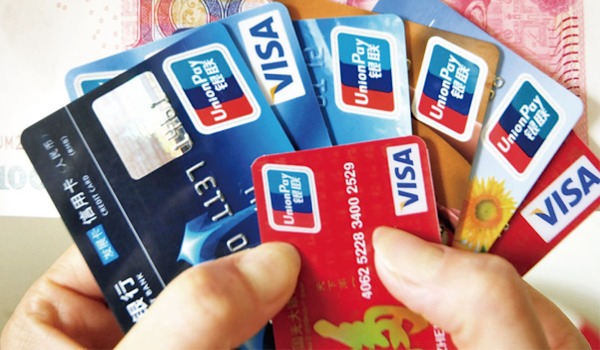
Photo Credit: greendollarbills.com
Credit cards often get a bad rap, and in many cases, it is the direct result of a consumer not being a responsible owner. The truth is, having a credit card or two can work in your favor. Credit cards can aid you in building your credit so that you can obtain personal goals like owning a home or a car, and in some cases help you out of a temporary bind if you don’t have the funds readily available. The trick is to educate yourself and make informed decisions here are some do’s and don’ts to get you started: 1. Do Check Interest Rates, Terms, and Fees Before opening a credit card account, you should learn about a few things. What the interest rate will be, how frequently fees are assessed, and other terms that could end up costing you more money as a credit card holder. This will help you in selecting the credit card that will work best for you without costing more than it’s actually worth in the long run. Tip: If you have bad credit or no credit, you may find it difficult to locate a credit card with low-interest rates and no or low fees. In this case, you’ll still want to select the best credit card and simply work on paying it off in a timely manner. This way, your credit will improve and you can apply for cards with better balances. 2. Do Pay Off the Balance (Or Keep it Below 30% of Total Limit) Every month you should strive to pay off the balance on the credit card entirely. This will minimize the amount of interest you’re charged as well as the fees that are assessed. If you can’t afford to pay the entire thing off, then at the very least, keep it below 30% of the total limit on your card as going above that will affect your credit rating. Tip: Sometimes life happens and the bills begin to pile up. If you’re unable to pay off a credit card that has a serious balance on it, you could consider looking into balance transfer promotions. Balance transfer credit cards allow users to transfer the balance from one card to one with zero or low-interest rates. This can improve your credit score and make it easier for you to pay down the balance faster. As always be sure to read the terms of agreement prior to signing up for a card. 3. Do Make Payments on the Actual Due Date Many people don’t realize that they could avoid paying interest on a purchase they made using credit if they would just pay it off in a timely fashion. The best way to do this is to make note of your due dates and issue a payment then. Some banks allow you to set up automatic payments that are disbursed from your account and sent to the credit card company on the due date. Setting this up will give you peace of mind so that you never forget when a payment is due. Tip: If you can’t make a payment on the due date, try to see if your credit card company will give you a grace period. They may be willing to forego the interest if you pay within 1-3 business days of the due date. Sometimes all you have to do is ask. 4. Don’t Open Too Many Accounts When you open one credit card, it is quite possible you’ll receive offers for others in the mail or online. Don’t be tempted to open more credit accounts than you can afford to keep track of. Too many new accounts can seriously ruin your credit score and will leave you vulnerable to putting a balance on several cards which makes it easier to fall behind. Tip: Having 1 or 2 cards is not necessarily a bad thing, but a good rule of thumb would be to open an account or two and wait at least a year before considering another one. If you do well with repaying the credit cards you have and seriously feel like you want another one, then knock yourself out. 5. Don’t Skip Payments Even if your balance is low, it is important to keep making timely payments. Skipping payments because you’re not at your limit only adds to the amount of interest you’re going to pay on your balance. Not only does missed payments increase your out of pocket costs, but it also looks bad on your credit score. Tip: If something goes wrong and you can’t make a payment, it is best to contact your credit card company and work out some other arrangement. This will prevent them from adding extra fees and also from making annoying collection calls. Owning a credit card doesn’t have to be a financial decision that you end up regretting later on. A credit card will improve your credit score which can look great for a plethora of purchases you might need to make in the future. As long as you shop wisely for the best offer, make timely payments, and talk with your creditor when you don’t have the means to make a payment, you will be just fine.